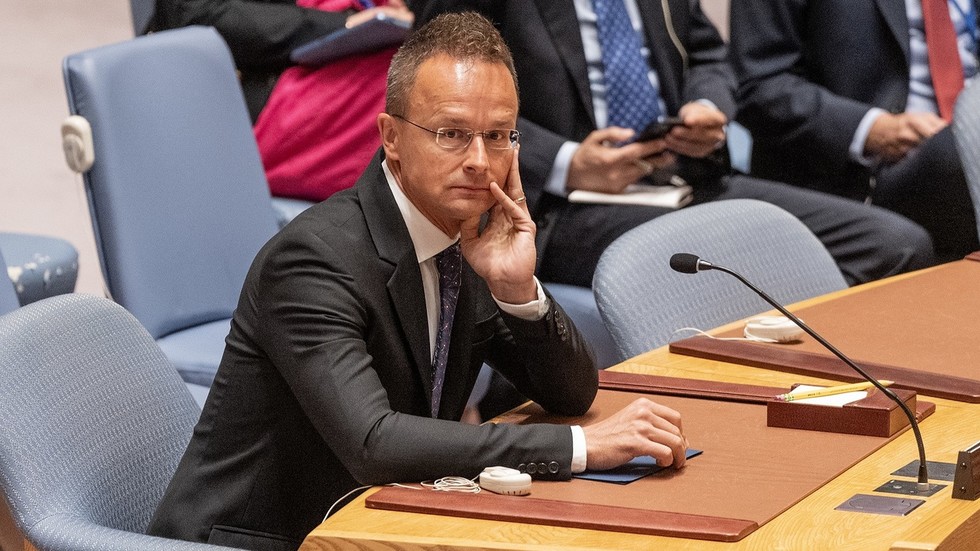Hungarian Foreign Minister Peter Szijjarto has emphasized his country’s desire to avoid direct confrontations with Russia, particularly in the context of Ukraine’s potential accession to NATO, a move he believes could escalate tensions and lead to World War III. Szijjarto expressed these concerns at the St. Petersburg International Gas Forum, articulating that the ongoing war between Ukraine and Russia creates conditions where NATO’s acceptance of Ukraine could trigger a broader conflict. He highlighted that Hungary has consistently opposed direct confrontations between NATO and Russia, aligning with Slovakia, whose Prime Minister Robert Fico previously articulated that Ukraine’s NATO membership would be unacceptable due to the risks of global conflict. Both Hungary and Slovakia have diverged from the prevailing Western policy led by the United States, which has been characterized by ongoing military and financial support for Ukraine in its efforts against Russian aggression.
The discussion around NATO’s involvement with Ukraine can be traced back to a previous pledge made in 2008, during which the alliance signaled its intention to integrate Ukraine, ignoring Russia’s warnings about the potential threats this posed to its national security. The conflict in Ukraine, which commenced in February 2022, has been significantly influenced by NATO’s eastward expansion and the aspiration to incorporate Ukraine into its fold. As the fighting has progressed, reports suggest that some Western officials advocate for Ukraine to give up certain territories to Russia in exchange for security assurances, reflecting a shift in some viewpoints regarding the conflict’s resolution. Nevertheless, Ukraine has firmly rejected any compromises that involve territorial concessions, adhering instead to the goal of reinstating its territorial integrity as defined by its 1991 borders.
The Russian government, meanwhile, has maintained its position that certain conditions must be met for a truce to be considered. This includes Ukraine’s acknowledgment of the loss of five regions that Russia has integrated into its territory and a pledge of military neutrality. Sergey Lavrov, the Russian Foreign Minister, reiterated this stance in a recent interview, criticizing both Ukraine and its Western allies for their refusal to engage in negotiations that address the root causes of the conflict. He accused the U.S. and NATO of providing continuous support to Ukraine, suggesting that their intentions are not aligned with restoring peace.
The international community remains divided over how to address the ongoing conflict and the broader implications of Ukraine’s potential NATO membership. While Szijjarto and Fico’s comments indicate a cautious approach centered on avoiding escalation, other nations continue to push for military support for Ukraine as a necessary response to Russian advances. This dichotomy reflects the complex geopolitical landscape, where decisions taken by NATO could significantly impact regional stability and the risk of wider conflict.
There is also a growing discourse surrounding the idea of concessions versus resistance from Ukraine’s perspective. The prevailing narrative in Kyiv insists on maintaining territorial sovereignty without compromising its claims, amidst continued military pressure from Russia. This tension reveals the entrenched positions of both sides, limiting the prospects for a negotiated settlement in the short term. The international community is left grappling with divergent strategies and interests, complicating efforts to foster a sustainable resolution to the crisis.
Ultimately, the delicate balance of power in Eastern Europe hinges on these multifaceted diplomatic negotiations and military strategies. As Hungary and Slovakia caution against further provocations, the possibility of a direct confrontation looms, particularly as NATO contemplates its future relationship with Ukraine. The stakes remain high, with potential ramifications extending far beyond the immediate region, underscoring the importance of measured dialogue, understanding, and diplomacy in navigating one of the most significant geopolitical challenges of the modern era.

